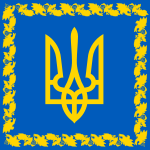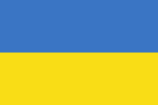Leonid Kuchma
| Leonid Kuchma Леонід Данилович Кучма |
|
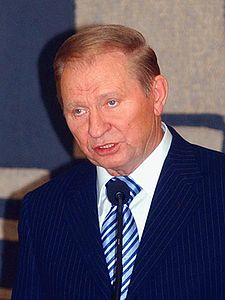 |
|
|
|
|
|---|---|
| In office July 19, 1994 – January 23, 2005 |
|
| Prime Minister | Vitaliy Masol Yevhen Marchuk Pavlo Lazarenko Vasyl Durdynets Valeriy Pustovoitenko Viktor Yushchenko Anatoliy Kinakh Viktor Yanukovych |
| Preceded by | Leonid Kravchuk |
| Succeeded by | Viktor Yushchenko |
|
|
|
| In office October 13, 1992 – September 22, 1993 |
|
| President | Leonid Kravchuk |
| Preceded by | Valentyn Symonenko |
| Succeeded by | Yukhym Zvyahilsky |
|
|
|
| Born | August 9, 1938 Chaikyne, Chernihiv Oblast, Ukrainian SSR, Soviet Union (now Ukraine) |
| Nationality | Ukrainian |
| Political party | Unaffiliated |
| Spouse(s) | Ludmila Tumanova |
| Occupation | Politician |
| Religion | Ukrainian Orthodox |
| Ukraine |
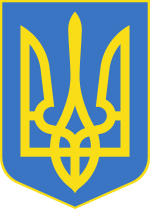 This article is part of the series: |
|
|
|
|
Other countries · Atlas |
Leonid Danylovych Kuchma (Ukrainian: Леонід Данилович Кучма) (born August 9, 1938) was the second President of independent Ukraine from July 19, 1994, to January 23, 2005. Kuchma took office after winning the 1994 presidential election against his rival then-President Leonid Kravchuk. Kuchma won re-election for another 5-year term in 1999, staying in office until Viktor Yushchenko's inauguration in 2005.
His presidency has been surrounded by numerous corruption scandals and the lessening of media freedoms. Corruption accelerated after Kuchma's election in 1994, but in 2000-2001, his power began to weaken in the face of exposures in the media.[1]
Under his watch the Ukrainian economy continued to decline until 1999, whereas growth was recorded since 2000, bringing relative prosperity to some segments of urban residents. During his presidency, Ukrainian-Russian ties began to improve.[2]
Contents |
Early life
Kuchma's father had died in a battlefield during World War II in 1944. He attended Dnipropetrovsk University and graduated with a degree in rocket engineering. Kuchma then moved into senior management posts of the Yuzhmash industrial company in Dnipropetrovsk, eventually becoming its top executive, as well as in the Communist Party elite. As such, he played an important role in Soviet strategic missile and space rocket programs.
Some researchers believe that Kuchma's earlier career was significantly boosted by his marriage to Lyudmila Tumanova, the daughter of a local CPSU chief.
Kuchma was an amateur guitar player in his younger years. He was also known for his skill at the complicated card game preferans.
From 1990 to 1992 Kuchma was a member of the Ukrainian parliament (Committee on Defence and State Security), and became Prime Minister of Ukraine in 1992.
President (1994-2005)
Kuchma resigned from the position of Prime Minister of Ukraine in September 1993 to successfully run for the presidency in 1994 on a platform to boost the economy by restoring economic relations with Russia and faster pro-market reforms. He was re-elected in 1999 to his second term. During Kuchma's Presidency opposition papers were closed and several journalists died in mysterious circumstances[3].
Domestic Policy
In October 1994, Kuchma announced comprehensive economic reforms, including reduced subsidies, lifting of price controls, lower taxes, privatization of industry and agriculture, and reforms in currency regulation and banking. The parliament approved the plan's main points. The International Monetary Fund promised a $360 million loan to initiate reforms.
He was re-elected in 1999 to his second term. Opponents accused him of involvement in the killing in 2000 of journalist Georgiy Gongadze (see also SBU, "Cassette Scandal", Mykola Mel'nychenko), which he has always denied. Critics also blamed Kuchma for restrictions on press freedom. Kuchma is believed to have played a key role in sacking the Cabinet of Viktor Yushchenko by Verkhovna Rada on April 26, 2001.
Kuchma's Prime Minister from 2002 until early January 2005 was Viktor Yanukovych, after Kuchma dismissed Anatoliy Kinakh, his previous appointee.
Foreign Policy
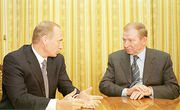
Kuchma signed a "Treaty of Friendship, Cooperation, and Partnership" with Russia, and endorsed a round of talks with the CIS. Additionally, he referred to Russian as "an official language". He signed a special partnership agreement with NATO and even raised the possibility of membership of the alliance.
After Kuchma's popularity at home and abroad sank as he became mired in corruption scandals, he turned to Russia as his new ally, saying Ukraine needed a "multivector" foreign policy that balanced eastern and western interests.
Kuchma, Putin and transnational crime
Kuchma's former bodyguard, who defected to the West, tapped his conversations.
One of the tapped conversations is about the Saint Petersburg Immobilien und Beteiligungs AG, a company suspected of facilitating Saint Petersburg mobsters, Colombian drug lords, and transcontinental money laundering. Vladimir Putin was one of the company's advisers from 1992 until he became President of Russia in 2000. On the tapes, Kuchma discusses Putin's Europe-wide operation to get into possession of all documents that could be used as evidence.[4]
Kuchma and the Cassette Scandal
In September 2000 journalist Georgiy R. Gongadze disappeared and his headless corpse was found on 3 November 2000. On 28 November, opposition politician Oleksandr Moroz publicised secret tape recordings implicating Kuchma in Gongadze's murder. In 2005 the Ukrainian Prosecutor General’s office instigated criminal proceedings against Kuchma and members of his former administration in connection with the murder of Gongadze.[5] It is rumored, however, that Kuchma had been unofficially granted immunity from prosecution in return for his graceful departure from office in 2005.[6]
Role in the election's crisis of 2004
Kuchma's role in the election's crisis of 2004 is not entirely clear. After the second round on November 22, 2004, it appeared that Yanukovych had won the election by fraud, which caused the opposition and independent observers to dispute the results, leading to the Orange Revolution.
Kuchma was urged by Yanukovych and Viktor Medvedchuk (the head of the presidential office) to declare a state of emergency and hold the inauguration of Yanukovych. He denied the request by admittedly stating in a phone conversation with Russian President Vladimir Putin that he refused to pass the government into the hands of an alleged Donetsk criminal. Later, Yanukovych publicly accused Kuchma of a betrayal.
Nevertheless, Kuchma refused to officially dismiss Prime Minister Yanukovych after the parliament passed a motion of no confidence against the Cabinet on December 1, 2004.
Soon after, Kuchma left the country. He returned to Ukraine in March 2005.
Kuchma stated in October 2009 he would vote for Victor Yanukovych at the Ukrainian presidential election, 2010.[7]
Politicians closely associated with Kuchma
Aides and advisors that became public figures after or before
- Volodymyr Horbulin - personal friend, aide, later Head of the National Security and Defense Council
- Volodymyr Lytvyn - long-term first aide, later Head of Presidential Administration, then Speaker of the Verkhovna Rada
- Viktor Medvedchuk - business oligarch, then First Vice Speaker of Verkhovna Rada, later Head of Presidential Administration (2001–2004)
- Dmytro Tabachnyk - manager of the Kuchma's first successful election campaign, later Head of Presidential Administration, then Vice Prime Minister[8]; now Minister of Science and Education
Influential statesmen
- Leonid Derkach - personal friend, Head of the Security Service of Ukraine
- Yuri Kravchenko - Minister of Internal Affairs (police chief), committed suicide after the fall of Kuchma's regime
- Oleksandr Omelchenko - long-term governor and mayor of Kiev
Business oligarchs and managers of important state-owned companies
- Ihor Bakai - business oligarch, later head of Naftogas of Ukraine national gas and oil company, then Head of the State Accommodation Department, escaped to Russia after the fall of Kuchma's regime, refusing to ever return permanently
- Heorhiy Kirpa - long-term head of the Ukrzaliznytsia national railways, then Minister of Transportation, committed suicide after the fall of Kuchma's regime
- Viktor Pinchuk - second son-in-law, business oligarch in control of several important media
Family
Kuchma's daughter Elena Franchuk founded the ANTIAIDS Foundation in 2003.[9] She is married to politician Viktor Pinchuk, a famous industrialist.[9] She is rumoured to have just bought the world's most expensive house, in London, for £80 million.[10][11]
Although Kuchma does not work for the Ukrainian state anymore he is still living in a state-owned dacha in Koncha-Zaspa.[12]
Further reading
- Aslund, Anders, and Michael McFaul.Revolution in Orange: The Origins of Ukraine's Democratic Breakthrough (2006)
- Aslund, Anders. How Ukraine Became a Market Economy and Democracy (2009)
- Birch, Sarah. Elections and Democratization in Ukraine (2000) online edition
- Kubicek, Paul. The History of Ukraine (2008) excerpt and text search
- Kuzio, Taras. Ukraine: State and Nation Building (1998) online edition
- Sochor, Zenovia A. "Political Culture and Foreign Policy: Elections in Ukraine 1994." in: Tismăneanu, Vladmir (ed.). 1995. Political Culture and Civil Society in Russia and the New States of Eurasia. (1994) ISBN 1-56324-364-4. pp. 208–224.
- Whitmore, Sarah. ''State Building in Ukraine: The Ukrainian Parliament, 1990-2003 Routledge, 2004 online edition
- Wilson, Andrew. Ukraine's Orange Revolution (2005)
- Wilson, Andrew. The Ukrainians: Unexpected Nation, 2nd ed. 2002; online excerpts at Amazon
- Wolczuk, Roman. Ukraine's Foreign and Security Policy 1991-2000 (2002) excerpt and text search
- Zon, Hans van. The Political Economy of Independent Ukraine. 2000 online edition
References
- ↑ Adrian Karatnycky, "Ukraine's Orange Revolution," Foreign Affairs, Vol. 84, No. 2 (Mar. - Apr., 2005), pp. 35-52 in JSTOR
- ↑ Robert S. Kravchuk, "Kuchma as Economic Reformer," Problems of Post-Communism Vol. 52#5 September-October 2005, pp 48-58
- ↑ Country profile: Ukraine, BBC News
- ↑ J.V. Koshiw (12-13 october 2007). "Kuchma’s “Parallel Cabinet” - The center of President Kuchma’s authoritarian rule based on the Melnychenko recordings". http://www.ukrainianstudies.uottawa.ca/pdf/P_Koshiw_Danyliw07.pdf.
- ↑ Mosnews.com
- ↑ Guardian
- ↑ Kuchma says he'll vote for Yanukovych as Ukraine's president, Kyiv Post (October 16, 2009)
- ↑ In the cabinet of Yanukovych
- ↑ 9.0 9.1 Elena Franchuk ANTIAIDS Foundation : The daughter of Kuchma will be fighting against AIDS and her husband Pinchuk will provide his media support
- ↑ Times
- ↑ World's Most Expensive Home, Elena Franchuk, Sir Elton John, Worlds Most Expensive, Property, Estate
- ↑ Ukrayinska Pravda exposes president’s Mezhygirya deal, Kyiv Post (May 6, 2009)
| Political offices | ||
|---|---|---|
| Preceded by Valentyn Symonenko |
Prime Minister of Ukraine 1992–1993 |
Succeeded by Yukhym Zvyahilsky |
| Preceded by Leonid Kravchuk |
President of Ukraine 1994–2005 |
Succeeded by Viktor Yushchenko |
| Party political offices | ||
| Preceded by Office created |
Leader of the Party of Regions 2001 |
Succeeded by Volodymyr Semynozhenko |
|
||||||||||||||||
|
|||||||||||||||||||||||||||||||||||||
|
||||||||||||||
External links
- Yushchenko Won the Competition of Personalities (Kuchma's 2005 interview for Russian Vremia Novostey newspaper) (Russian)
